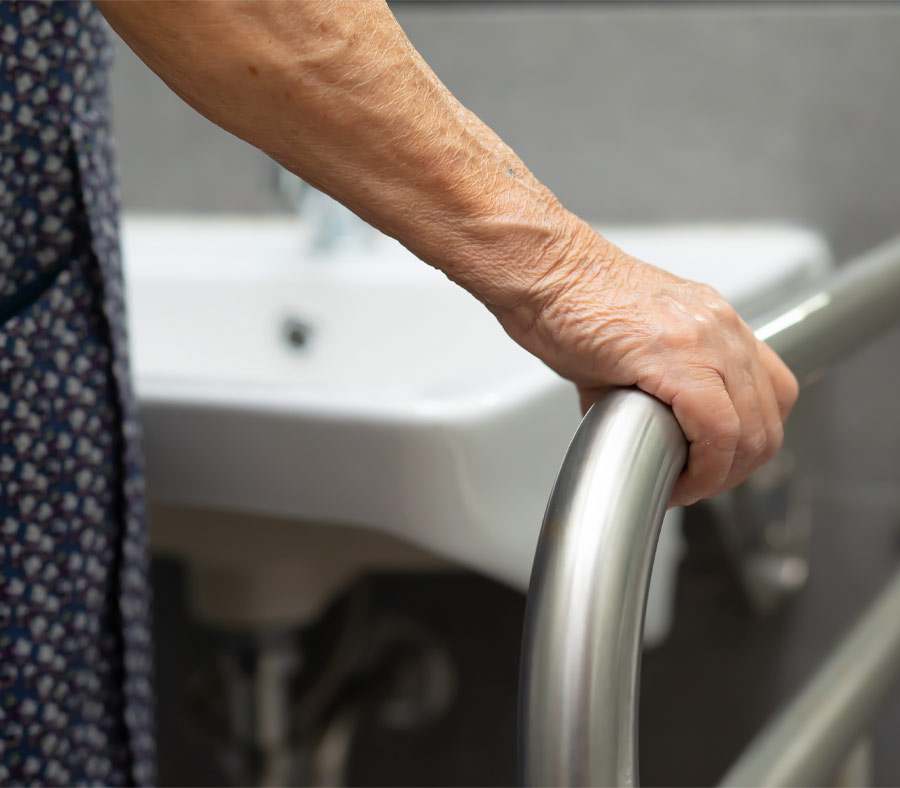Good Continence Care in Hospital
In terms of the direct impact this has had on hospital patients and those requiring support in the community, it often means that even basic care needs are not always being meet. With for example, stories of individuals being left unwashed or found to be malnourished, as well as not being taken to the bathroom regularly.
The latter, ‘toileting and continence care’, has often been described as the canary in the mine, as lack of support in this area is often one of the earliest and most obvious signs of poor care, whether that’s on the ward or in someone’s home.
Again, this is largely a structural issue, rather than the fault of the workers themselves, with low staffing numbers (and poor training) meaning that many individuals leave their shifts in tears having not been able to provide the care they would like to have done.
In terms of the direct impact this has had on hospital patients and those requiring support in the community, it often means that even basic care needs are not always being meet. With for example, stories of individuals being left unwashed or found to be malnourished, as well as not being taken to the bathroom regularly.
The latter, ‘toileting and continence care’, has often been described as the canary in the mine, as lack of support in this area is often one of the earliest and most obvious signs of poor care, whether that’s on the ward or in someone’s home.
Again, this is largely a structural issue, rather than the fault of the workers themselves, with low staffing numbers (and poor training) meaning that many individuals leave their shifts in tears having not been able to provide the care they would like to have done.
For example, NHS feedback sites online regularly report on the indignity of elderly patients being forced to wet themselves and/or their beds because staff took too long to respond to their requests.
Sadly, I have direct family experience of this, with a close relative having recently had a three day stay in hospital during which they were immobile and had been left to ‘wet their bed’ on more than one occasion because staff were run off their feet and not able to respond in time. And although my relative was understanding, because they saw how busy the staff were, the indignity of having to do this was significant. To make matters worse, my relative is a retired health professional themselves, and knows this shouldn’t be happening. And fortunately, as soon as they were home, my relative didn’t have any further problems and has recovered fairly quickly.
But sadly, this is not an isolated case, and many people fair even worse. Here at the Pad Project UK, we receive significant support from and share office space with the award-winning domiciliary care company By Your Side. And talking to staff there about this issue, they have confirmed this is relatively common. With fairly independent clients going into hospital, even for relatively short periods of time, and then coming out ‘de-skilled’ and struggling with their mobility and continence.
This often has a significant impact on individuals with cognitive difficulties, such as dementia, who may take a long time to relearn these skills, or tragically loose them altogether. For example, on returning home from hospital, carers and relatives can find an individual now ‘doubly incontinent’ having previously been able to toilet with assistance. A situation that can be extremely distressing for all those concerned, especially when equipment to deal with this may not be readily available. This was one of the reasons why The Pad Project UK, which collects unwanted continence supplies and redistributes them to those in need, was set up in the first place. Because getting an assessment and support in such situations may take many months. Yet individuals and their families, many of whom are struggling financially themselves, often need help immediately. With care agencies and their staff often informally supporting clients and their families, by supplying them with spare continence care equipment until their own arrives.
Hospital Pad Culture
Even more depressing, is the increasing practice of automatically putting elderly patients into incontinence pads, whether they are incontinent or not. Again, this is a situation that is regularly highlighted in online care forums in the UK and is also backed up by academic research. For example, my friend and colleague Professor Katie Featherstone from the University of West London published research on this very issue in June 2022, please click here for more information. This was widely reported on in the UK including by the BBC, see article here. And since then, newspapers such as The Daily Mail have followed this up with further articles, which you can read about here.
One common situation experienced by many individuals, as highlighted above, is having to wait so long to go to the toilet that they are forced to wet themselves or their bed. Fortunately, my relative was not identified as being ‘incontinent’ after such an incident, but other individuals may be less fortunate and find this condition noted down in their medical records. Staff may then coerce or encourage such individuals to wear continence pads as a ‘just in case measure’ and even use the justification that this will help them by preventing the extra workload caused by a wet bed.
Although staff members may reassure individuals that they will still be taken to the toilet, this is not always the case, because the medical label of ‘incontinence’ and the knowledge that someone has a pad on, may discourage some care workers from reacting in a timely manner. Worst still, patients may buzz and ask to use the toilet, and simply be ignored or told by overworked staff to wait or just ‘go in their pad’ and they will come and change them later. Made worse by the fact that on some wards, patients have then been chastised by individual staff members for having done just that and ‘used their pad’. Particularly when they may have been left for so long that they had to ‘go in their pad’ more than once and that it may now be saturated, and they have wet through it onto their hospital gown and bed.
Unfortunately, this doesn’t just include denied requests from individuals who may need to urinate (wee), but also from those that may also need to empty their bowels (poo). As you can imagine, this is an even more undignified situation being forced to fill your incontinence pads, and then being left in that undignified and uncomfortable state, until someone comes and cleans you up. A situation that is a common occurrence in many hospital wards and nursing homes across the country, with the potential for individuals to then have to wait many hours before being changed. A practice that has been highlighted in a number of official reports over the last few years, with Royal Tunbridge Wells Hospital and Mid Staffordshire Hospital being two examples. With evidence coming to light at these two hospitals, where patients in understaffed geriatric wards were left to wet and/or soil themselves directly, rather than being taken to the toilet, and then left for many hours in their own mess.
As an individual who lives with continence issues myself, I know how embarrassed and undignified this can make you feel. And I can’t imagine how it feels to be a vulnerable elderly person in hospital, who is fully continent, and who is then effectively told to be ‘incontinent’ because there aren’t enough staff to assist you to the toilet. The damage done to a person’s dignity and mental health cannot be overstated, in addition to the risk of infection, skin damage, and high chance that they may then become reliant on pads and then become incontinent.
The term, hospital-acquired incontinence, is a recognised condition in its own right and as the name suggests refers to when people develop incontinence during their stay in a healthcare setting. It tends to affect more elderly patients, but not exclusively, and can be caused by a number of factors. These can include being immobile, unfamiliar surroundings, taking medication that may impact the bladder and bowels, and of course having to rely on others for your toileting needs. In regard to the latter, even an otherwise healthy person can be incontinent if they are asked to wait a longtime or their requests are ignored.
In such situations, many individuals take drastic actions, for example restricting what they eat and drink in order to reduce the likelihood of accidents. This is extremely dangerous, particularly for the elderly who can easily become dehydrated and malnourished, and this can quickly lead to organ failure and potentially even death. And whilst systems are in place in care settings to make sure that medication is administered correctly and other clinical indicators are monitored, the equally important day to day needs of patients such as making sure they are clean and have adequate food and drink, do not always get the attention they deserve. And this includes toileting, particularly in terms of individual choice, which is often given a low priority. With ward routines and practices often taking precedent, resulting in patients being asked to use bedside commodes rather than their preferred option of being taken to the toilet, for example. Or as highlighted in Kate Featherstone’s work, patients living with dementia whether they are continent or not, automatically being put in protective pads or pants in many wards across the country.
The take home message here is that with adequate staffing levels and putting patients at the centre of hospital care, no one should have to experience the indignity of unnecessary incontinence or lack of choice in their toileting needs.







